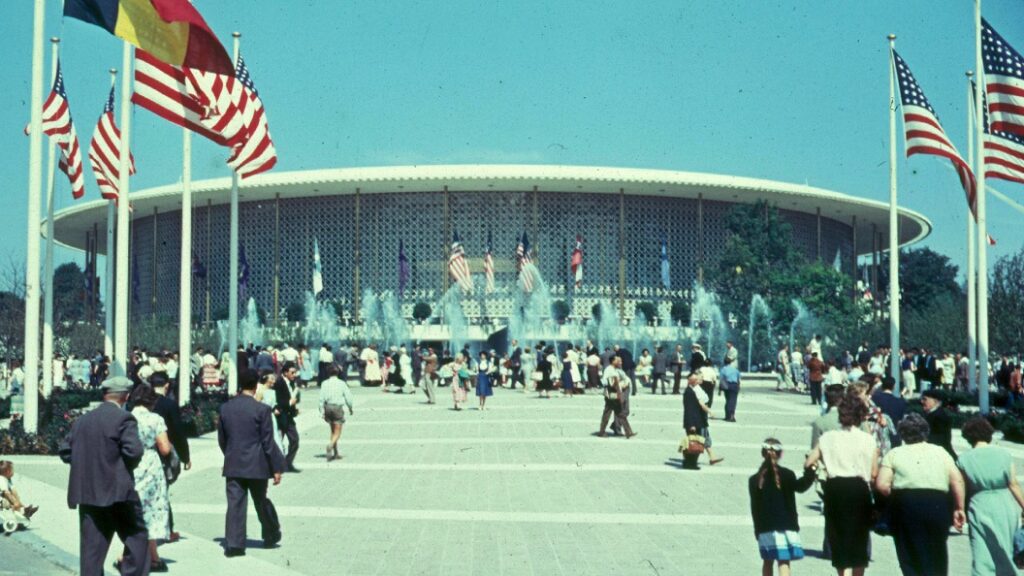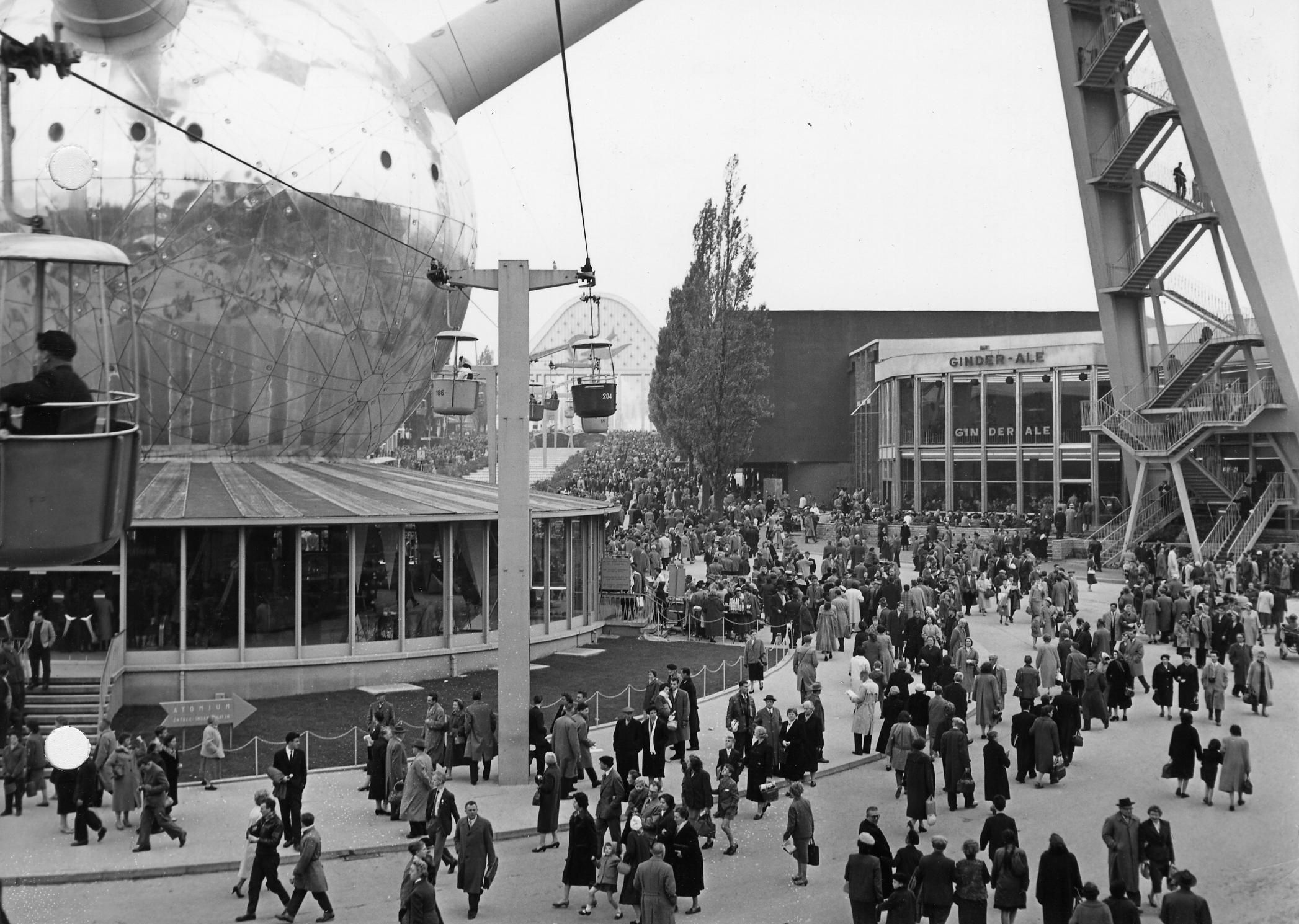“Come see what I found in Dad’s dressing room!” said my sister as she pulled me into the dressing room. “Look at this!”
What she had found was a mannequin head, a grey-haired wig and a case containing an elaborate make-up kit.
Suddenly it all made sense in my boyish mind. My father was American, and my mother was Belgian, and during my childhood, we moved between Brussels and Washington DC. For years we had wondered about our father’s work.
Officially he was a journalist working for a Rome-based subscription newsletter called Business International (BI). It was only in 1977 that the New York Times revealed how BI provided cover for CIA agents in the 1950s.
When we were very young, my mother told us “When your father goes out in the middle of the night, he is doing something good.”
My mother would later recount some of what he really did. Some of it my father told me. Some of it I surmised. And in retrospect, a highlight of his time in Brussels was the 1958 World’s Fair.
I was eight during Expo 58 and I was completely immersed in it. André Waterkeyn, the creator of the Atomium, was our next-door neighbour so we had a front-row seat to its development. And my grandfather, a retired senior member of the Ministry of the Colonies, was kept in the loop on the elaborate central African presence at the fair – I remember his animated phone calls disagreeing to the plan to have living Congolese as part of the exhibits.
My father would spend a lot of time at the fair and often took me with him. Invariably at some point he would park me somewhere while he went to “take care of business.”
Wartime connection
My father would later tell me that he had been in the US Office of Strategic Services (OSS), the Second World War precursor agency to the CIA. He worked with T-Force, whose mission was to secure anything of intelligence value from the retreating Germans.
By May 1944, there were 11,000 American officers and foreign agents – including my father – scattered in capitals across Europe. The CIA hired my father in 1947 when it was founded, making him a charter member.
In 1952, after five years with the agency in Brussels, he was reassigned to headquarters, then in Washington DC, before returning to Brussels two years later. When he left the agency – or The Boys, as he referred to it – he told his colleagues he was leaving for good. So whatever work he was doing back in Brussels was likely deeply undercover – and it had taken two years of training to get him ready.
Only one person at the US embassy in Brussels knew his true role and that was the CIA station chief, who was officially the cultural attaché. Not even the ambassador knew. The cultural attaché lived across the street, making communication easy and low profile. “I’m going to see Roger” was all he said when he went over.
Spies at the Expo
Everyone agreed that placing the Russian and American pavilions at Expo 58 next to each other at an angle with the French pavilion partially separating them was a Belgian joke.
It certainly emphasised their different images. Entering the American pavilion, one was greeted by a huge pile of Raggedy Ann dolls. However, visitors to the Soviet pavilion were met by an enormous tank and a huge tractor – and this, just two years after tanks had rolled into Budapest to suppress the Hungarian uprising.
It turns out that the fair was the perfect environment for espionage. It offered many believable covers for visiting foreigners and was a Cold War free-for-all with the highest concentration of spies ever assembled.

The landmark American theatre, which is still standing
Two moments stand out in retrospect. One was when my father took me to the UNIVAC computer in the American pavilion. People could ask the computer what had happened on a particular date and a page would print out with the events of that day. My father suggested that I ask what happened on my birth date – but without saying when it was. The computer gave back a flawless answer.
I may have been only eight years old, but I didn’t buy the idea that the computer had calculated my birthday. My father told me that the operator would size up the people asking and make an educated guess. I still wasn’t convinced.
I figured that my father had passed on the information. After all, he had spent a lot of time at the pavilion as it was being set up.
The other moment was also in the American pavilion. This was one of the times that my father left me in a room filled with toys and some other children.
However, when my father came back to retrieve me, I noticed portholes in the wall. People were behind the wall, watching me, spying on me!
Fake professor
It was years later that my sister found the dressing room items.
We decided it was time to confront our mother. It was a welcome release for her to tell us about it. For obvious reasons, the spouse of the agent had to know a minimum. She told us that only eight people in the CIA did what our father did. When my sister mentioned the wig and kit my mother told us that he would sometimes disguise himself as “an old German professor” to do his work.
As for me, Expo 58 was a fantasy world predicting a space-age society that I wanted to believe in. But it was also the beginning of my questioning of truth and appearances. When we were very young and our father said, “I’m James Bond - ha ha!”. We should have believed him.

